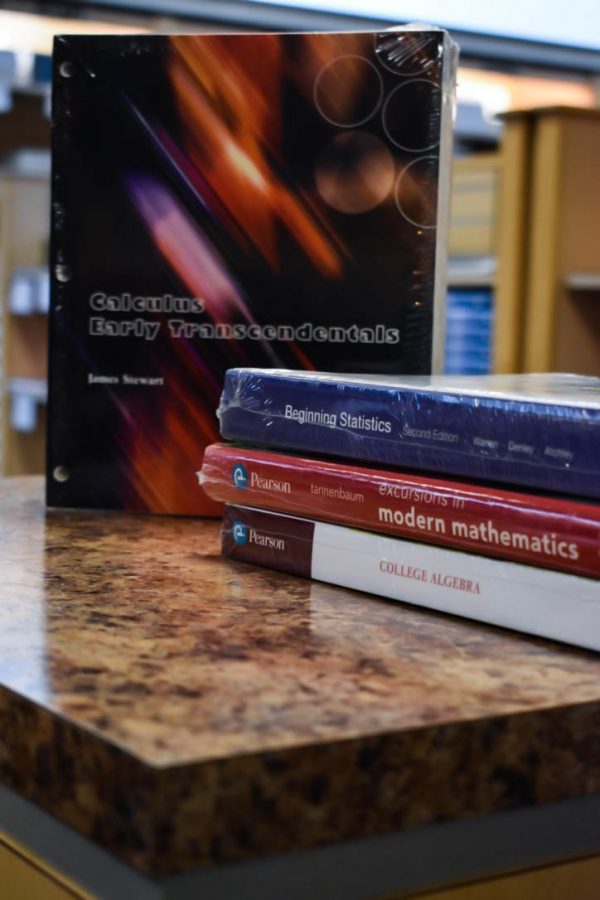Developmental math courses get redesign
Noncredit classes to redesign
This fall, the math department will create a new course sequence.
March 1, 2018
Students will be able to complete developmental, noncredit math requirements much faster in fall 2018 as faculty continue to streamline the path to credit classes.
The math department developed two new course sequences in fall 2017. Faculty will complete the final course sequence this fall.
Students who do not qualify for general education math classes have needed to take up to 10 hours of non credit courses before taking any credit courses, which can take up to a year.
But starting in fall, students can start earning math credit after taking just one or two non-credit courses. If the Accuplacer test places a student into a non-credit course, that student will have to take only between two and seven equivalent credit-hours total before beginning to take credit classes.
“[The changes] will not only save time but tuition money,” Dr. Amber Rust, the mathematics chair, said. “Once these changes roll out … students who place in a developmental math course [can complete] their program of study much quicker.”
AACC will offer two courses in the new fall 2018 course sequence.
Math 044, Precalculus Foundations, will be a five-credit, 15 week course, followed by Math 045, Introduction to Precalculus, which students can take as either a stand-alone eight-week course or a five-week course paired with Math 145, Precalculus 1.
Dr. Mike Gavin, AACC’s vice president for learning, said at a September Board of Trustees Meeting that many students find pre-credit, developmental courses “unengaging and disconnected” from their educational goals. These students are more likely to stick with a shorter, more intensive course than a longer program, he said.
At the same meeting, Liberal Arts Dean Alicia Morse, a math professor, said AACC’s math program, which includes accelerated classes, shows a much higher success rate than the old program.
“I think it’s great that students won’t have to take unnecessary math classes,” Abbey Dinsmore, a first-year culinary arts student, said.
In addition to the math faculty’s creation of a third-course sequence, AACC administrators said they are planning changes for English developmental courses, as well.
“The department is still working out the details,” English and Communications Department Chair Steve Canaday said.












